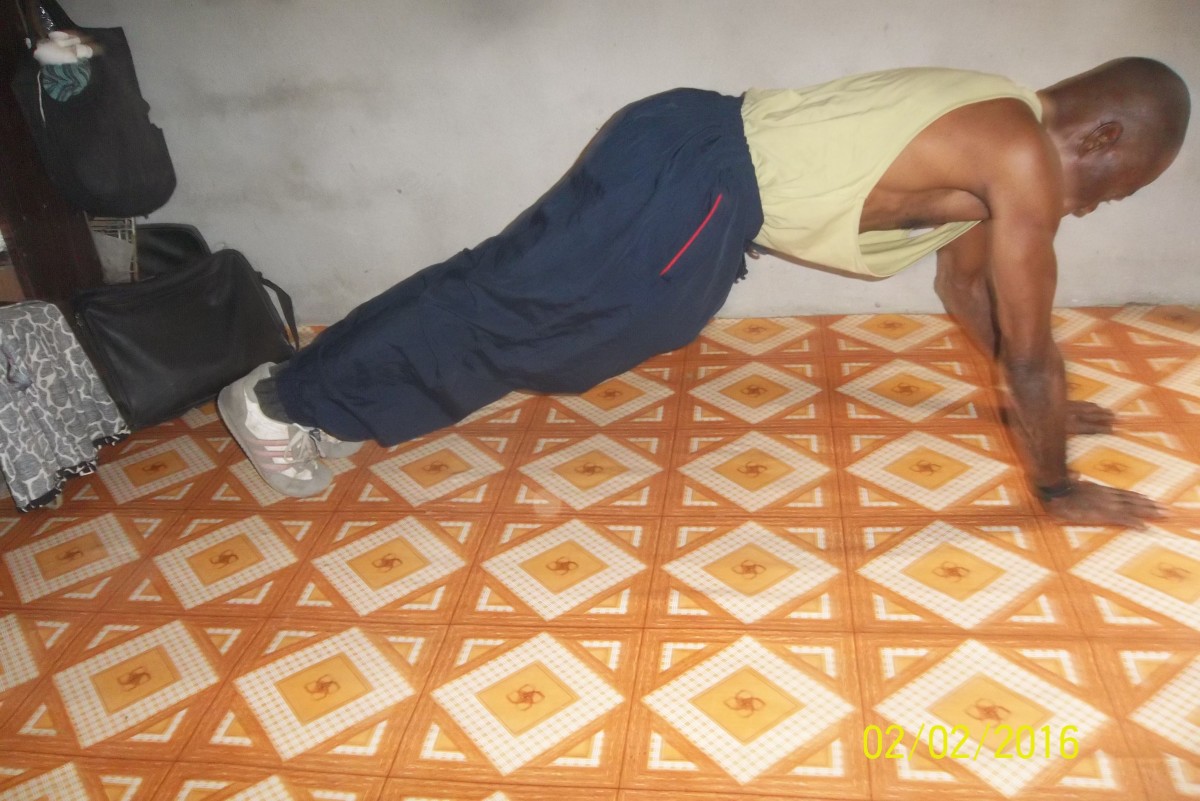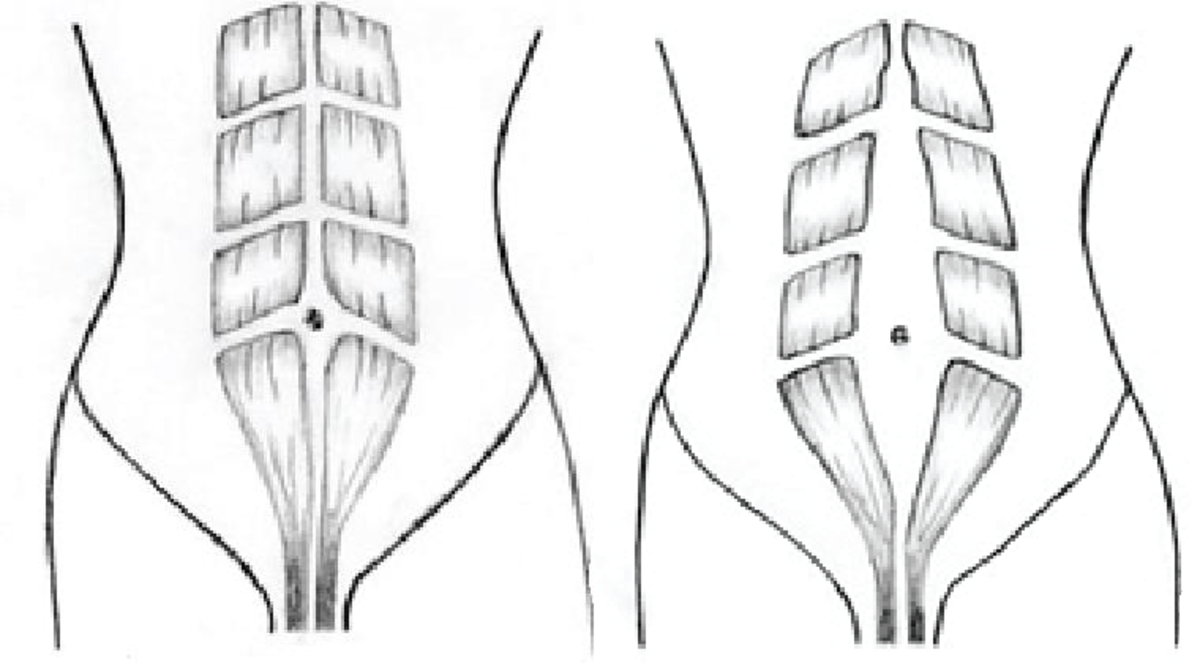Kegel Exercises for Women Before and After Childbirth
Kegel Exercises for Pregnancy
Kegel exercises are recommended for women of just about all ages to perform on a daily basis. It's a simple exercise that entails contracting and releasing you hold on the PC muscles. There are many benefits of kegel exercises, such as to gain better bladder control, heighten sexual senses, improve the big 'O,' and tone the vagina.
When pregnant, kegel exercises can be very important because they do help support the rectum, vagina, and the urethra. The exercises will help before and after giving birth to your child.
By practicing the exercises before and after, you can potentially reduce the embarrassment of urinary dribble while laughing, sneezing, and coughing. Plus, it'll help promote bladder control after you give birth. You are stretching the pelvic floor muscles. It is very important to keep them toned an controlled.

How to do Kegel Exercises
If you're not sure what muscles you're supposed to be toning, the next time you have to go to the bathroom, stop your urine while mid-stream. Those are the muscles you're going to be working with. You don't want to constantly interrupt the flow of urine, but if it takes you a few times to figure out how to control the muscles, then it is ok, just don't find yourself doing it all the time. You can actually cause more bladder control damage by frequently stopping your urine flow.
Once you've figured out which muscles you're working with, it's time to get started. You'll want to start small and light until you can work your way up.
Tighten the muscles for about 3 seconds and release for 3 seconds. Do this about 10 to 15 times. You want to work your way up to contracting for 6 seconds about 25 times. You want to do these reps about 3 times a day.
You will eventually be able to work your way up to more repetitions, but it's best to keep it at about 3 times a day. It may take a few weeks at each new increased set before you're able to move to the next increase. For example, you may have to work at 15 times for a week before you can move to 25, and it may take 2 weeks before you can increase to 50. Just know your limits because you can overwork the muscles.
Kegel exercise is easy, and no one has to know when you're doing it. Just make sure that you don't tighten any other muscles other than the pelvic floor muscles, and make sure that you don't hold your breath.
Benefits of Kegel Exercises During Pregnancy
During pregnancy, it is a good idea to prepare your pelvic muscles for childbirth, especially if you plan on having a natural, vaginal birth. By performing the kegel exercises, you will be able to gain better control over your muscles during labor and delivery. You have about 40 weeks to prepare your body and muscles for the delivery of your baby.
During your pregnancy, the pelvic muscles stretch a lot! Some women will experience tearing, and by performing kegel exercises, you will help tone the muscles and prepare them for the actual birth. There are many women who claim that by doing kegel exercises, they were even able to reduce abdominal cramps caused by muscle stretching.
Plus, by performing kegel exercises during your pregnancy, your muscles will be able to restore faster after you give birth.
The lose of bladder control is a concern for some women during pregnancy; they may suffer light leakage, especially when they laugh, sneeze, or cough. Kegel exercises can help tone those muscles to prevent the leakage and any embarrassing moments caused by urinary incontinence.
Some pregnant women also experience hemorrhoids, which regular kegel exercises can help reduce. The exercise helps to aid circulation in the rectal area, which will in turn reduce the risk and odds of developing hemorrhoids.
If your birth plan is for a natural birth, kegel exercises will definitely help you. Many women have to have Cesarian births, and with kegel exercises, you can actually reduce the risk of having to have a C-section.
Kegel Exercises After Childbirth
After a vaginal birth, you want to continue your kegel exercises, as they will help tone your muscles after the large amount of stretching that they have just done. When you push out a baby, the muscles have to endure a lot of stretching, and kegel exercises will help tone your muscles and vagina.
Because your muscles have stretched so much during the 40 weeks of pregnancy, the muscles will have been weakened. Even if you exercised them throughout your pregnancy, childbirth still takes a lot of strain on the muscles.It is very important to continue the kegel exercises after you give birth to your child.
Kegel exercises will help you in a number of ways after you give birth.
- Continue to promote bladder control
- Reduce urinary incontinence
- Promote healing of the muscles by increasing blood flow to the pelvic floor
- Reduce pressure on episiotomy stitches
- Relieve perineum (tissues of the vulva) tenderness
- Relieve discomfort and pain of the vulva swelling caused by fluid buildup
- Tone the muscles and vagina
- Reduce risk of hemorrhoids
- Reduce risk of uterine or bladder prolapse (slide out of place or drop down)
- Reduce risk of organs dropping and sagging into the vaginal wall (very serious condition)

Myths About Kegel Exercises
It is very important to engage in kegel exercises, especially after childbirth, but there are many women who are scared of the myths that accompany the exercises.
The most common misconception about kegel exercises is that the exercises can overstimulate and tone the muscles, which can cause tearing during childbirth. These women believe that toned and strengthened pelvic floor muscles become too inflexible to stimulate birth, which is what causes tearing and damage to the body.
This just isn't true. Toned and conditioned muscles are actually much more flexible than weak muscles. Weak muscles can lead to inflexibility and actually increases your risk of problems.
If you want to avoid the most discomfort and problems during and after pregnancy, it is highly recommended that you ignore the myth and practice kegel exercises.
Kegel Exercises for Women and Men
Tips for Pregnancy and Childbirth
- Importance of Prenatal Vitamins
- Keep a Belly Button Piercing During Pregnancy
- Weight Training Tips for Pregnant Women
- Naturally Reduce Stress While Pregnant
- Herbs to Relieve Stress and Anxiety During Pregnancy
- Healthy Diet for Women with Gestational Diabetes
- Continue a Vegetarian Diet While Pregnant
- Maintain a Vegetarian Diet While Nursing an Infant
- Healthy Diet to Relieve Postpartum Depression
- Supplements to Relieve PostPartum Depression
Disclaimer:
Please be aware that the advice in
this article should in no way replace that of a licensed
physician. If
you have any questions, please consult a doctor, so that you can further discuss any concerns that you have.








